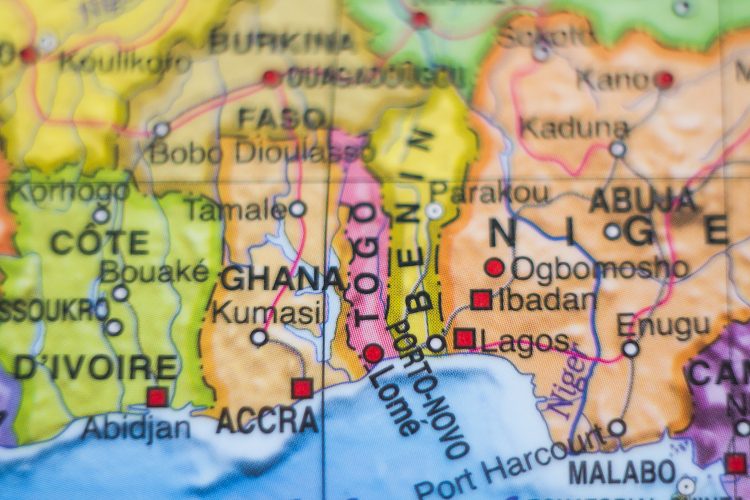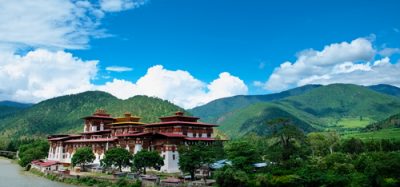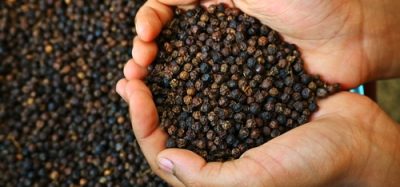Crack research team will try to solve one of humankind’s biggest problems
- Like
- Digg
- Del
- Tumblr
- VKontakte
- Buffer
- Love This
- Odnoklassniki
- Meneame
- Blogger
- Amazon
- Yahoo Mail
- Gmail
- AOL
- Newsvine
- HackerNews
- Evernote
- MySpace
- Mail.ru
- Viadeo
- Line
- Comments
- Yummly
- SMS
- Viber
- Telegram
- Subscribe
- Skype
- Facebook Messenger
- Kakao
- LiveJournal
- Yammer
- Edgar
- Fintel
- Mix
- Instapaper
- Copy Link
Posted: 17 June 2022 | New Food | No comments yet
The research team will use the diversity of the selected case studies to attempt to solve one of humankind’s greatest challenges – how are we going to feed more people?


The Gulf of Guinea is just one of the five case studies
An international team led by University of British Columbia researchers will study five case studies across five continents to model a range of solutions to an urgent question: how can we feed everyone on Earth, and those to come, sustainably?
The Solving Food-Climate-Biodiversity (FCB) project, led by Dr. William Cheung, professor in UBC’s Institute for the Oceans and Fisheries (IOF), focuses on the Earth’s capacity to sustain life and support human wellbeing, food security, climate mitigation, and safeguarding biodiversity. The project has received $2.5 million in funding from a Social Sciences and Humanities Research Council partnership grant recently, with a further $2.8 million contributed by partner organisations.
The international project team spanning 10 countries “will spend the next six years co-developing solutions with researchers, knowledge-holders and policymakers to achieve sustainable and desirable futures for Earth’s strained global ecosystems. These ecosystems continue to be vulnerable to increased demands from rising populations and food security, decreased biodiversity and climate change,” according to the research team.
“Finding transformative solutions for sustainable food production, climate mitigation and adaptation, marine, freshwater and land-based biodiversity conservation is the ultimate goal of this project,” said Dr. Cheung, Canada Research Chair in Ocean Sustainability and Global Change.
“We aim to show policy- and decision-makers that there are viable solutions to these kinds of global problems, that saving our resources, and protecting and feeding people now and in the future, is achievable.”
The five case studies in Canada, China, Costa Rica, Ghana and Nigeria, and the Netherlands are deliberately diverse and include a range of socio-economic and environmental contexts, allowing the team to model solutions in a range of contexts, said Dr. Cheung. “We want to make sure we’re evaluating solutions that are applicable and effective under different circumstances, not just for North America.”
The case studies will focus on a variety of topics, from exploring coastal First Nations’ seafood systems that provide nutritional security and environmental stewardship in Canada, to examining aquaculture innovation in China to increase seafood supply, contribute to carbon offsetting and supporting coastal biodiversity. In Ghana and Nigeria, the focus will be on examining ways to resolve illegal, unregulated and unreported (IUU) fishing in the Gulf of Guinea to ensure marine ecosystems survive under climate change.
“We have gathered partners and collaborators from across the globe, integrating input from Indigenous communities, universities, domestic and international government, and non-government organizations,” said Dr. Cheung.
“Integrating their expertise and the results for the case studies they will lead, will, we hope, result in an integrated set of biodiversity, food security and climate mitigation solutions that can be implemented world-wide.”
He also noted that the scale and urgency of the challenges this research nexus will address have been featured in recent high-level international and national assessments and reports, including those published by the Intergovernmental Panel on Climate Change (IPCC).
“Managing these challenges will require exploring pathways to dealing with the food-climate-biodiversity goals, not on a case-by-case basis, but simultaneously, and with awareness of the complex and diverse social and ecological contexts occurring around the world, particularly for small-scale and Indigenous operations. “Each group brings something to the table that integrates with the others,” said Dr Cheung.
“We’re putting together different puzzle pieces to build something great.”
While the project is Herculean in scope, Cheung and Sumaila are optimistic. “It is exactly the diversity of it that’s key,” said Dr. Sumaila.
“We have so many case studies, we have different continents we’re looking at, different issues, and we’re going to learn from a diverse group of people while training new scholars for a sustainable and equitable future. I believe this project is going to succeed in so many different ways.”
Related topics
Related organisations
Solving Food-Climate-Biodiversity (FCB) project, University of British Columbia









